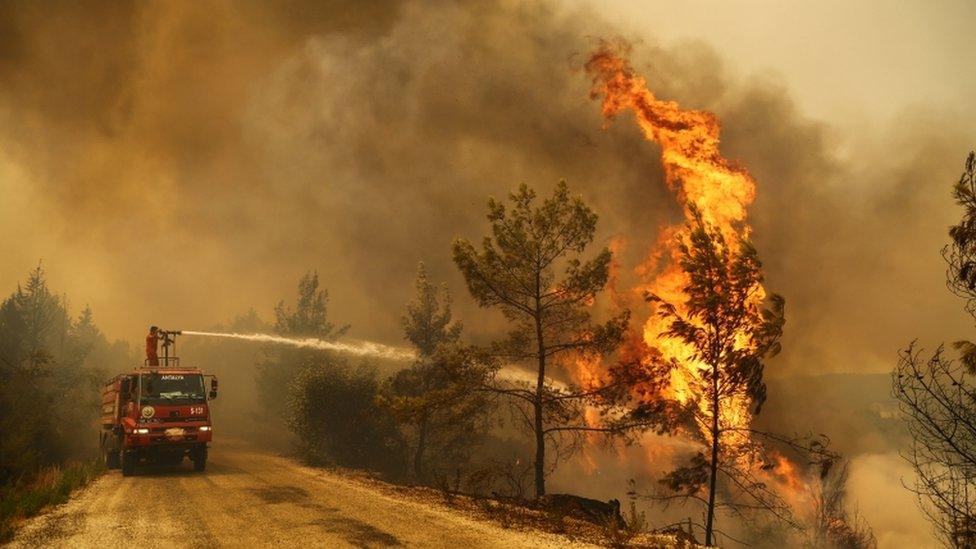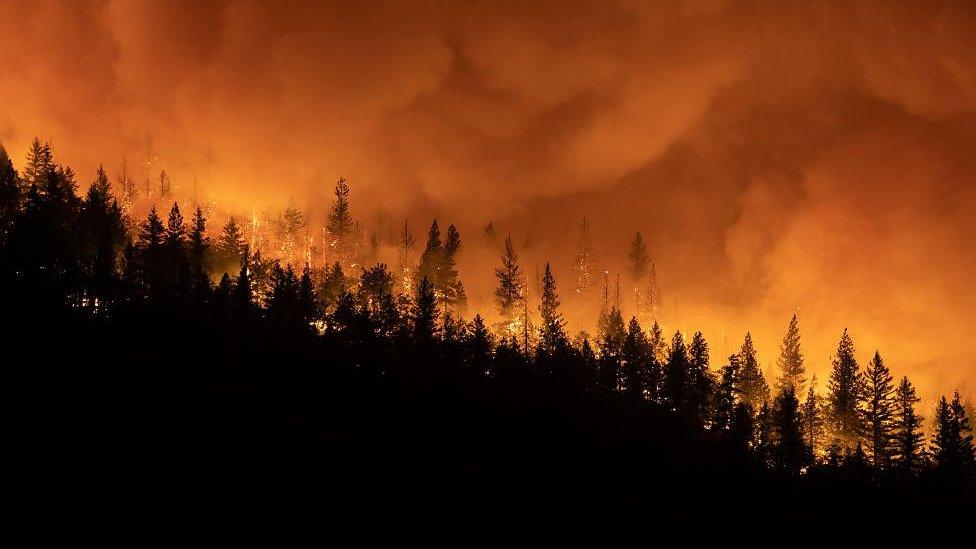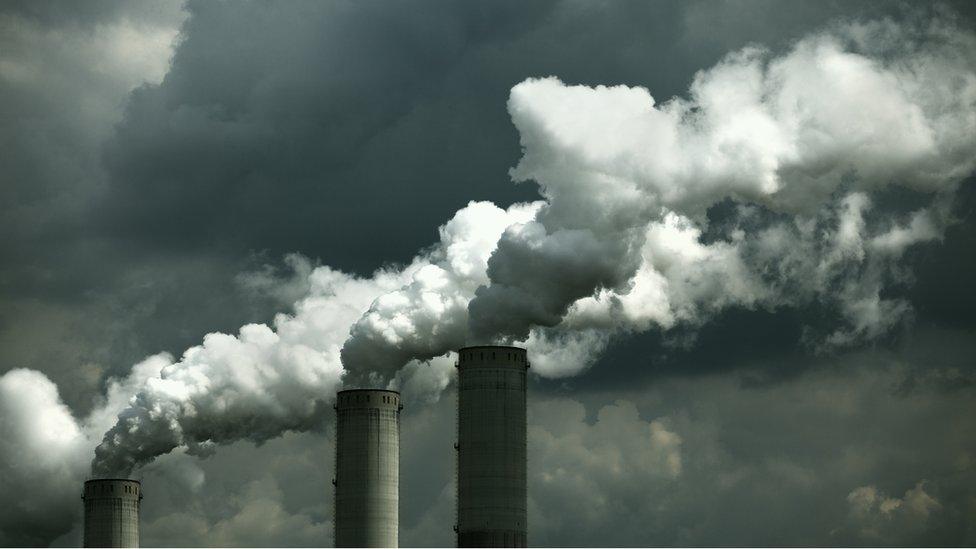Climate change: July world's hottest month ever
- Published
- comments

Turkey is one of several Mediterranean countries to be affected by wildfires during high temperatures
July was the world's hottest month ever recorded, according to a US federal scientific and regulatory agency.
The data shows that the combined land and ocean-surface temperature was 0.93C (1.68F) above the 20th Century average of 15.8C (60.4F).
It is the highest temperature since record-keeping began 142 years ago. The previous record, set in July 2016, was equalled in 2019 and 2020.
Experts believe this is due to the long-term impact of climate change.
Climate change: YOUR questions answered by BBC science and environment reporter Victoria Gill
In a statement, the National Oceanic and Atmospheric Administration (NOAA) said that July's record was a cause for concern.
"In this case, first place is the worst place to be," NOAA administrator Rick Spinrad said.
"This new record adds to the disturbing and disruptive path that climate change has set for the globe."
The combined land and ocean-surface temperature was 0.01C higher than the 2016 record.
In the Northern Hemisphere, land-surface temperature reached an "unprecedented" 1.54C higher than average, surpassing a previous record set in 2012.
Europe had its second-warmest July on record, with several parts of southern Europe reaching temperatures of above 40C (104F)
Since then, Italy may have registered the hottest temperature ever recorded in Europe, with 48.8C (119.8F) reported in Sicily - although the reading needs to be verified
Asia saw its hottest July ever
North America had its sixth-hottest July on record. In late June, Canada recorded its highest-ever temperature, with Lytton in British Columbia reaching 46.6C (116F)
July was also Australia's fourth warmest on record and New Zealand's sixth warmest
Africa experienced its seventh-hottest July
South America recorded its 10th-warmest July

Southern Europe has been sweltering for weeks in unprecedented heat
The data also showed that July was Asia's hottest month on record, as well as Europe's second hottest after July 2018.
Earlier this week, a report from the United Nations said that climate change is having an "unprecedented" impact on earth.
UN Secretary General António Guterres said that the findings were "a code red for humanity."
"If we combine forces now, we can avert climate catastrophe. But as today's report makes clear, there is no time for delay and no room for excuses," he said.
The authors of the report say that since 1970, global surface temperatures have risen faster than in any other 50-year period over the past 2,000 years.
- Published13 August 2021

- Published12 August 2021

- Published12 August 2021

